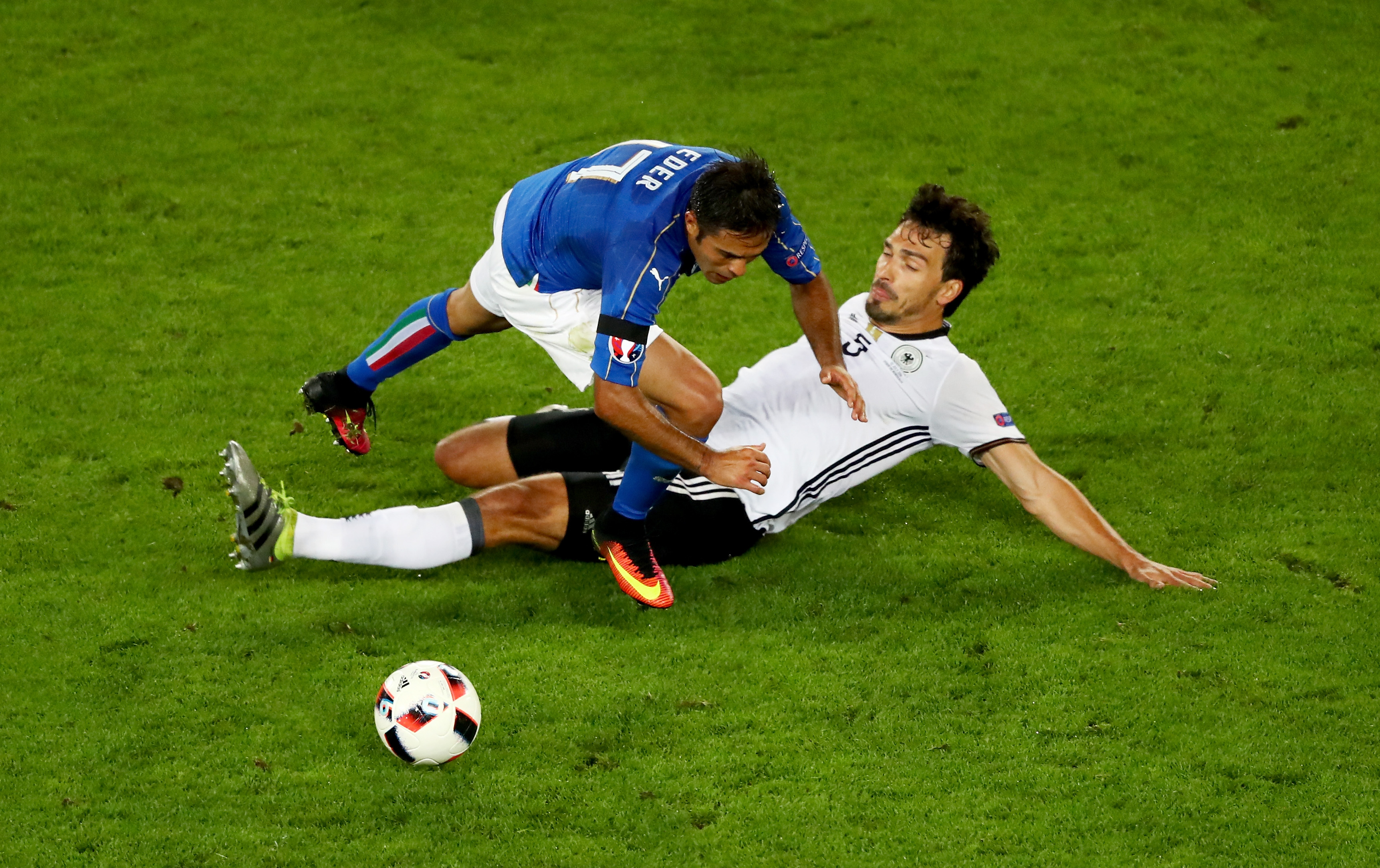The decline of the classical defender
This past summer, many of the European clubs scrambled over to sign defenders for huge transfer fees and that too when most of them were untested on the big stage. What has brought about the demise of the modern defender that forces clubs to pay inflated fees for them.

This past summer, as Antonio Conte looked to bring about some changes to a tattered Chelsea squad that embarrassed itself in their title defence last season. The area that needed improvement was glaringly obvious-- Defence! Jose Mourinho, the man at the helm of the aforementioned title defence, now in the bright red of Manchester United, wasted no time in buying a new spine for his new club. Marquee signings like Paul Pogba, Henrikh Mkhitaryan and Zlatan Ibrahimovic were made to beef up an insipid attack. A defender was all that was left. The ex-Chelsea boss spent £30 million-odd of Eric Bailly from Villareal, a huge price for someone so relatively untested. Across the town, Pep Guardiola looked to stamp his authority in City’s defence, shipping off Joe Hart and buying John Stones for £50 million.

 United's 30 million-odd buy of talented but inexperienced Eric Bailly indicates the shortage of quality defenders on the transfer market © Getty
United's 30 million-odd buy of talented but inexperienced Eric Bailly indicates the shortage of quality defenders on the transfer market © GettyConte’s hunt for some defensive solidity was the most farcical, with a £60 million bid for Napoli’s Koulibaly rejected. He got the same response to a £35 million bid he submitted for AC Milan’s young Alessio Romagnoli, and after briefly eyeing PSG’s Marquinhos, he had to settle for a £35 million fee for David Luiz. Elsewhere, Bayern snapped up Dortmund’s defensive bedrock, Mats Hummels while they too have struggled to replace their talismanic captain, bringing in Marc Bartra from Barcelona. Dortmund’s defence this season has looked shaky (injuries haven’t helped either) and Bartra, while reliable, is no Hummels.
There’s been a common theme in this and the past few windows- Defenders. Everyone wants them. A recurring narrative in the past few transfer windows has been some exorbitant amounts paid for defenders. Never before has the market for defenders been so inflated, and all of a sudden there’s a massive scramble to find quality center halves. So what has driven the sudden demand for defenders? How have clubs agreed to shell out big money for quality at the back?
It’s simple. The law of demand and supply states that “All other factors being

 The no-nonsense defenders of the early Premier League era are long gone. © Getty
The no-nonsense defenders of the early Premier League era are long gone. © GettyTo answer that, we have to see how football itself has changed over the decades. The days of the Italian Catenaccio are long gone. The rugged, no-nonsense defending that was the hallmark of several English teams, too, has evaporated. Modern football is more reliant on the technical skills, even from the defenders. Cruyffian principles of total football, though modified, are the fad. Teams like Bournemouth, whose main aim is about Premier League survival, play eye-catching football based on solid shape and ball retention. Defenders are now expected to pass it out of the back, be able to glide past people, ping accurate passes, and be unflustered under pressure from the opposition. The days of "giving the
Defenders have to organise, lead, communicate, read the game, tackle, intercept, be aerially dominant and now, also be technically proficient. It’s far too much for most players, and naturally, some aspects of their game take a hit. The hardman that once bullied attackers now has been replaced with one with more finesse, intercepting and passing with a certain languid grace. Full backs too, now focus primarily on the attacking side of their play, often disregarding their defensive duties. In fact, wingers being converted into fullbacks is becoming increasingly common (Antonio Valencia, Florenzi, etc). These players naturally are defensively deficient, and that has reflected in the overall quality of defenders in the transfer market.
.jpg)
 The modern-day fullbacks lack defensive abilities and are more focused on their attacking skills. © Getty
The modern-day fullbacks lack defensive abilities and are more focused on their attacking skills. © GettyAnother reason for the dearth of defenders could be the simple fact that defenders are an underappreciated, heavily-criticized lot. There’s no glory in being a defender. An excellent tackle or a goal-line clearance is no match for a
Football has inevitably and fortunately moved away from the days of rugged defending and long balls aplenty, but the art of defending has taken a hit. The quality of defenders in the sport is at an alarming low, but there is always hope. Young talent must be

Comments
Sign up or log in to your account to leave comments and reactions
0 Comments